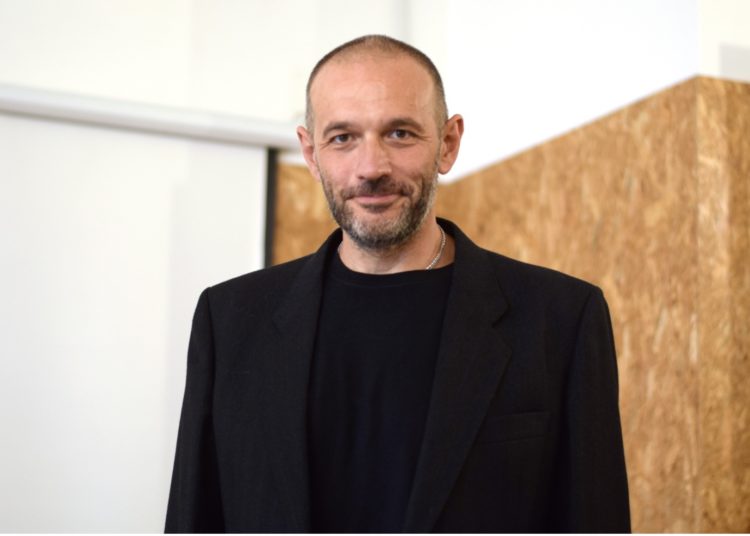This post is also available in: Français (French)
This conference was co-organized by the Laïques Sans Frontières (LSF) association, recently created in Paris, and the Council of Ex-Muslims of Britain (London), in collaboration with several organizations, journals, and research centers from Europe and the USA. On this anniversary of the advent of laïcité in France, which dates back to December 9, 1905, the event brought together more than 40 people: refugees and migrants from all over the world made up the majority of this exceptional laic panel of activists, artists, bloggers, journalists, unemployed people, young people, retirees …
These participants addressed obstacles and challenges in a contemporary light, first recalling that “laïcité is an essential tool to free women from the tutelage of men and guarantee freedom of conscience,” and that this applies to everyone, be they believers, atheists, or agnostics. Under a regime of laïcité, everyone chooses without constraint whether to believe or not, whether to practice this or that religion, whether to turn away from it or criticize it. Freely.
This stands against fake news that spreads falsified information, especially on social media, sowing fear among believers that laïcité turns people away from religion or that it might even prevent them from being religious. This fake news is a threat to laics, who are positioned as holding people back from walking around a stone or a church … Fake news is disseminated in many parts of the world, from the broad Muslim region that, going from East to West, spreads to the Catholic USA and in doing so passes through processions of evangelists in Africa, Europe, and South America. Will some groups’ capability of causing harm—these groups mostly meaning the fundamentalists and those close to the extreme right—ever subside in the face of the will to live, sing, and dance freely?
“Let’s be realistic, let’s demand laïcité severywhere,” states the LSF program. The Laïques de tous les pays (Laics from All Countries) know very well that the road to building systems of laïcité on a global scale is a long one. But “step by step,” it is possible, says a Pakistani refugeed in Paris. Even though more and more people are openly declaring themselves atheists, free thinkers, and feminists, many remain silent, intimidated by the threat of retaliation or the weight of patriarchal culture. It takes courage to face the scrutinizing gaze of your society, your community, the law of your country, without lying or hiding. Numerous activists have had real experiences of this and have had to pay for it, suffering greatly from dramatic separations from their communities or countries.
« Laïcité is an essential tool to free women from the tutelage of men and guarantee freedom of conscience,” and that this applies to everyone, be they believers, atheists, or agnostics.
In Iran, Mahsa Amini died after failing to wear her headscarf in a manner deemed proper for the Shiite mullahs, as recalled by an exile from this country. In 13 Sunni Muslim countries, apostasy, the act of denying one’s religion, is punishable by death. No religion can claim to protect women, even less to push them towards autonomy and equal rights. Sharia law, in its different forms, attenuated or not, reminds us of this every day.
In the 21st century, while women’s rights have progressed like never before, 21 American states (in the North and South) have banned abortion under pressure from fundamentalist movements! Movements that operate under the cover of religiosity among evangelists, Catholics, and Muslims.
There are glaring contradictions between the widely shared desire to live freely and the regressions suffered by citizens—mainly women, as women are rarely considered full citizens. It is women and LGBT+ individuals who pay the heaviest price in countries with authoritarian regimes. Which is why many prefer the heartbreak of exile to the hell of theocracies.
Laïcité, Laïcity, Laiquiya
Nadia el-Fani, one of the organizers of the LSF conference, made a crucial observation: “The word laïcité, contrary to what we think, does not only exist in French. It exists in Italian, in Spanish … and even in Arabic.” This director of Tunisian origin added that in her mother tongue, laïcité is referred to as la’iqiya. Maryam Namazie, founder and president of the Council of Ex-Muslims of Britain (London), also commented on the vocabulary used under various regimes. “Speaking of secularism rather than laïcité is (also) a strategy that Islamists use to circumvent this concept,” she said. Because there is a big step to take to go from secularism, which takes care of communities and often veers towards communitarianism, even if that entails obliterating individual freedom, and laïcité, which allows people the right to choose their lives, to choose to have a religion or not, without being forcibly attached to their communities of origin.
Hence the “compelling reasons to unite across our differences … Our strength is in numbers. Our weakness is silence,” stressed Martine Cerf, President of EGALE (1). Until this point, the “silence” of the interested was maintained by that of the media, more sensitive to the media noise of extremists than to the topic itself, which is delicate and may be sensitive to discuss (or even forbidden from being discussed). But since laic “force” is underestimated everywhere in the world, most of the speakers at the conference agreed to put religion in its rightful place, outside the sphere of the State. They co-signed the birth certificate of this international movement by launching the Paris Appeal: Laics of all countries, unite!































